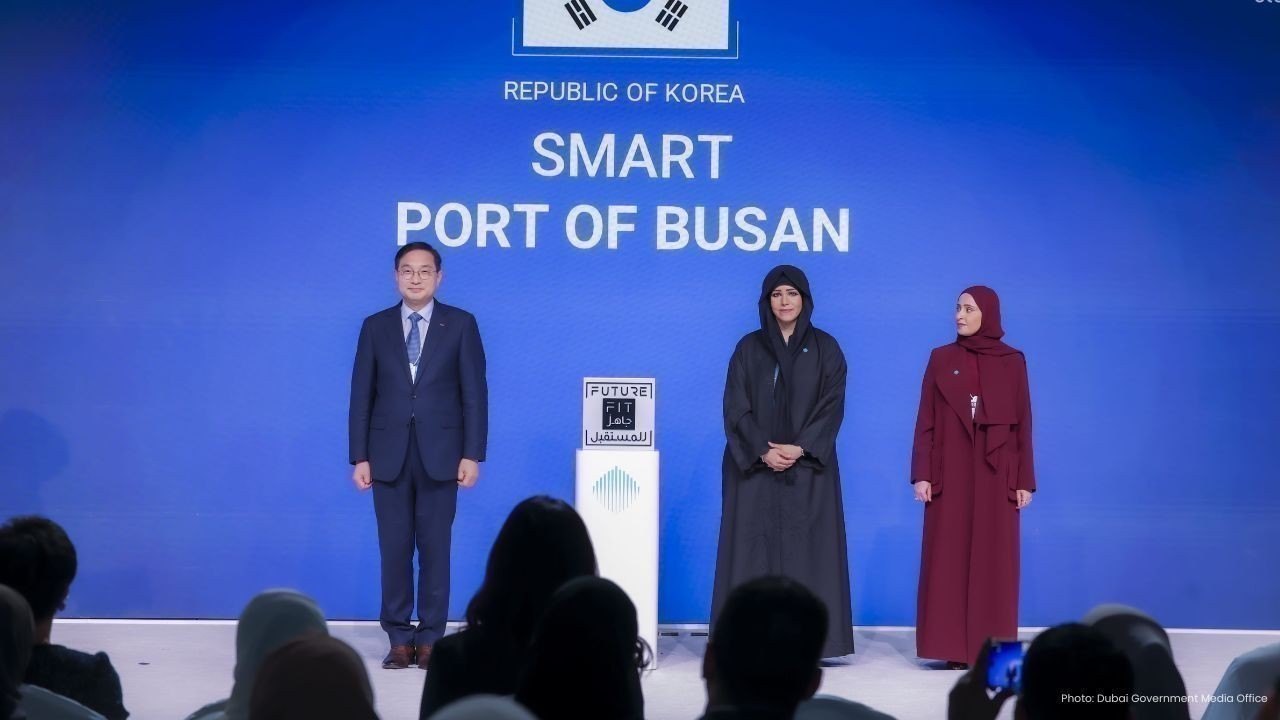
Post by : Zayd Kamal
In today's fast-paced world, smart cities are emerging as a beacon of innovation, transforming how we live, work, and interact with our environments. With the rapid advancement of technology, urban areas are evolving beyond traditional boundaries to become more efficient, sustainable, and connected. This shift is not merely a trend but a necessity in addressing the challenges of urbanization, population growth, and environmental concerns. In this article, we will explore how technology is redefining urban living through smart city initiatives and innovations.
Smart cities integrate information and communication technology (ICT) with the Internet of Things (IoT) to enhance the quality of life for residents. They leverage data from various sources—like sensors, cameras, and mobile devices—to improve services, streamline processes, and foster a more sustainable environment. The concept of smart cities is not just about high-tech solutions; it’s about creating a harmonious urban ecosystem that prioritizes the needs of its citizens. One key driver of the smart city movement is the increasing urban population. According to the United Nations, by 2050, around 68% of the world’s population is expected to live in urban areas. This dramatic shift necessitates innovative solutions to manage resources effectively, reduce waste, and improve overall living conditions.
Transportation is a critical component of urban living, and technology plays a pivotal role in creating smarter mobility solutions. Smart cities utilize data analytics and IoT to develop intelligent transportation systems (ITS) that optimize traffic flow and reduce congestion. These systems can monitor real-time traffic conditions, suggest alternative routes, and even adjust traffic signals to ensure a smooth flow of vehicles. Moreover, the rise of electric and autonomous vehicles is revolutionizing urban transportation. Smart cities are investing in electric vehicle (EV) infrastructure, such as charging stations and dedicated lanes, making it easier for residents to transition to greener modes of transport. By reducing reliance on fossil fuels, these cities are not only enhancing mobility but also contributing to cleaner air and lower greenhouse gas emissions.

Energy consumption is another area where smart cities are making significant strides. By integrating renewable energy sources, such as solar and wind power, cities can reduce their carbon footprint and enhance sustainability. Advanced energy management systems allow cities to monitor and optimize energy usage, ensuring that resources are utilized efficiently. Smart grids are a crucial element of this transformation. These grids leverage real-time data to improve the distribution and consumption of electricity. They enable better demand response, allowing cities to balance supply and demand dynamically. By fostering energy efficiency and encouraging the use of renewable sources, smart cities are paving the way for a more sustainable future.
Waste management is a pressing issue for urban areas, and technology offers innovative solutions to address this challenge. Smart cities are implementing smart waste management systems that utilize sensors and data analytics to optimize waste collection routes and schedules. By monitoring the fill levels of bins in real time, cities can reduce unnecessary pickups and minimize fuel consumption. Additionally, many smart cities are promoting recycling and composting through education and incentives. Technologies like waste sorting robots and AI-driven analytics help identify materials for recycling, reducing landfill waste and promoting a circular economy. This approach not only enhances cleanliness but also encourages community engagement in sustainability efforts.
Public safety is a paramount concern for residents of any urban area. Smart cities are leveraging technology to enhance security and emergency response capabilities. Advanced surveillance systems, equipped with AI and machine learning, can monitor public spaces for unusual activities, enabling law enforcement to respond swiftly to potential threats. Moreover, smart technologies facilitate better communication during emergencies. Cities can deploy real-time alerts and notifications through mobile apps, informing residents about natural disasters, traffic incidents, or health crises. This proactive approach not only ensures public safety but also fosters a sense of community resilience.
A defining feature of smart cities is the emphasis on community engagement. Technology provides residents with platforms to voice their concerns, share ideas, and participate in decision-making processes. Mobile apps and online forums allow citizens to report issues, such as potholes or broken streetlights, directly to city officials. Moreover, smart cities are increasingly incorporating participatory budgeting, enabling residents to allocate funds to community projects. This level of engagement fosters transparency and accountability, allowing residents to feel a sense of ownership over their urban environment.
As technology continues to advance, the potential for smart cities is limitless. Emerging trends, such as artificial intelligence, machine learning, and big data analytics, will further enhance urban living. By harnessing these technologies, cities can create tailored solutions that address the unique challenges faced by their communities. However, the journey towards becoming a smart city is not without its challenges. Issues related to data privacy, cybersecurity, and equitable access to technology must be addressed to ensure that all residents benefit from these innovations. Collaborative efforts between governments, businesses, and communities are essential to navigate these complexities and create inclusive smart city frameworks.
Smart cities are changing how we live in cities, making life easier and more fun. These smart cities use new technology, like computers and sensors, to help people get around better and to keep the air clean. For example, in smart cities, special systems help cars and buses move smoothly to avoid traffic jams. This makes it easier for everyone to reach their destinations. Also, smart cities are using renewable energy sources like wind and solar power. This helps reduce pollution and makes the environment healthier.
Another cool thing about smart cities is how they manage waste. They use smart bins that can tell when they are full, so garbage trucks only come when needed. This helps keep the streets clean and reduces the number of trips trucks have to make. In smart cities, safety is also a big deal. They have smart cameras and alert systems to keep people safe and to inform them during emergencies. Finally, smart cities encourage everyone to get involved. People can share ideas and report problems easily through apps, making them feel more connected to their community.
Overall, smart cities use technology to create better living conditions, making them more efficient, cleaner, and safer for everyone, especially kids and families.
The information provided in this article about smart cities and how technology is redefining urban living is for general informational purposes only. The content reflects current trends and insights about smart cities and technology's role in urban development. The DXB News Network does not endorse any specific technology or service mentioned and encourages readers to conduct their own research for a comprehensive understanding of this topic.
Smart Cities, Urban Living, Technology, Sustainability, Urbanization, Internet of Things (IoT), Intelligent Transportation Systems (ITS), Renewable Energy, Smart Grids, Public Safety, Community Engagement, Waste Management, Data Analytics, Urban Mobility, Environmental Impact, Traffic Management, Electric Vehicles (EV), Smart Infrastructure, Citizen Participation, Smart Technology

UN Mission to Monitor Ceasefire in Eastern DR Congo: Qatar
Qatar says the UN will send a mission to eastern DR Congo to monitor a permanent ceasefire after rep

Sheikha Latifa Honours 3 Global Projects with Future Fit Seal
At WGS 2026, Sheikha Latifa awarded the Global Future Fit Seal to Albania, Korea and Singapore proje

Winter Skin Care: 10 Hydrating Drinks That Give Natural Glass Skin Glow
Learn how simple winter drinks keep your skin hydrated reduce dryness and support a natural glass sk

10 Songs That Carry the Same Grit and Realness as Banda Kaam Ka by Chaar Diwari
From underground hip hop to introspective rap here are ten songs that carry the same gritty realisti

PPG and JAFZA Launch Major Tree-Planting Drive for Sustainability
PPG teams up with JAFZA to plant 500 native trees, enhancing green spaces, biodiversity, and air qua

Dubai Welcomes Russia’s Largest Plastic Surgery Team
Russia’s largest plastic surgery team launches a new hub at Fayy Health, bringing world-class aesthe

The Art of Negotiation
Negotiation is more than deal making. It is a life skill that shapes business success leadership dec

Winter Skin Care: 10 Hydrating Drinks That Give Natural Glass Skin Glow
Learn how simple winter drinks keep your skin hydrated reduce dryness and support a natural glass sk

Why Drinking Soaked Chia Seeds Water With Lemon and Honey Before Breakfast Matters
Drinking soaked chia seeds water with lemon and honey before breakfast may support digestion hydrati

Morning Walk vs Evening Walk: Which Helps You Lose More Weight?
Morning or evening walk Learn how both help with weight loss and which walking time suits your body

What Really Happens When You Drink Lemon Turmeric Water Daily
Discover what happens to your body when you drink lemon turmeric water daily including digestion imm

DXB News Network Presents “Ctrl+Alt+Wim”, A Bold New Satirical Series Starring Global Entertainer Wim Hoste
DXB News Network premieres Ctrl+Alt+Wim, a bold new satirical micro‑series starring global entertain

High Heart Rate? 10 Common Causes and 10 Natural Ways to Lower It
Learn why heart rate rises and how to lower it naturally with simple habits healthy food calm routin

10 Simple Natural Remedies That Bring Out Your Skin’s Natural Glow
Discover simple natural remedies for glowing skin Easy daily habits clean care and healthy living ti

Mattel Revamps Masters of the Universe Action Figures for Upcoming Film
Mattel is set to revive Masters of the Universe action figures in sync with their new movie, ignitin